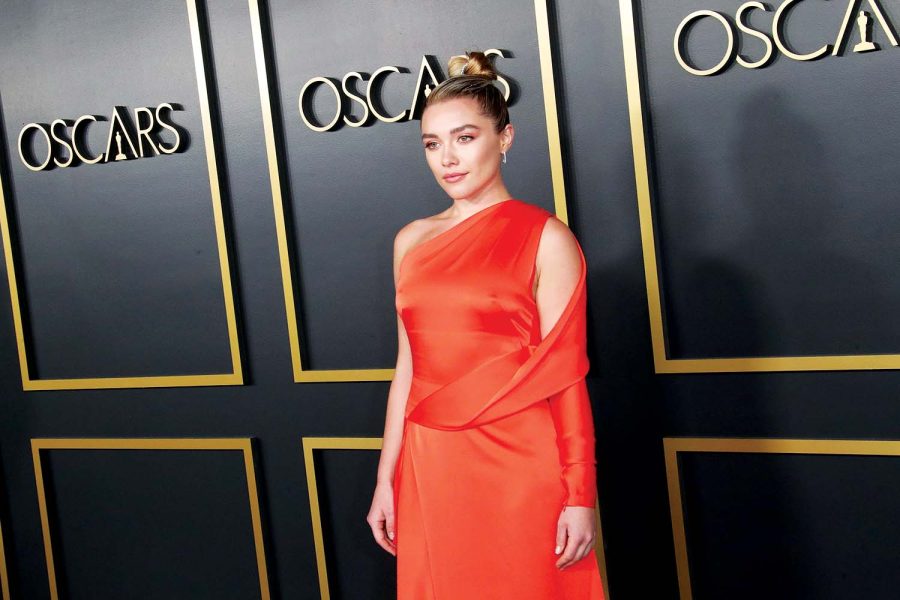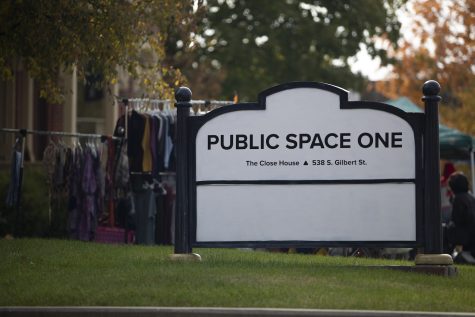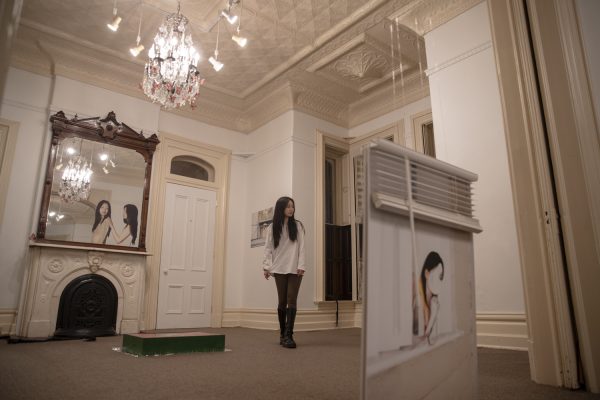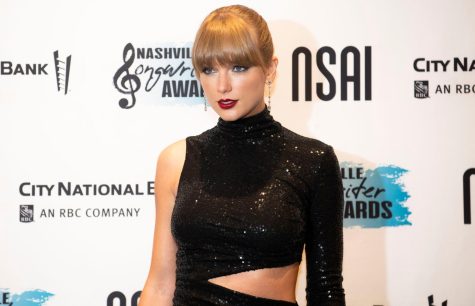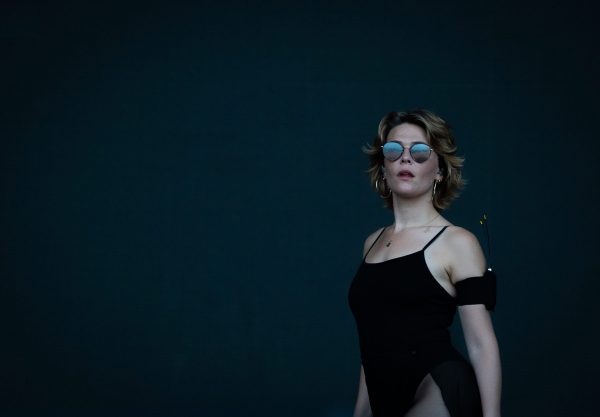Review | ‘Don’t Worry Darling’ is a psychological journey for the modern thriller fan
Directed by Olivia Wilde and starring Florence Pugh, ‘Don’t Worry Darling’ is a psychological thriller with a twist no one saw coming.
September 27, 2022
At first glance, “Don’t Worry Darling” seems like the epitome of a classic 1950s all-American movie. Set in a town called Victory, where men are the breadwinners and women stay at home, Harry Styles and Florence Pugh play the seemingly picturesque 1950s American couple. This couldn’t be farther from the truth.
Of course, I watched the trailer when it was first released in May, but even then the trailer didn’t give much plot to go off. It put out similar vibes to the 2019 thriller “Midsommer,” which Pugh also starred in. I was expecting a cult movie with Pugh’s character Alice confronting the patriarch Frank, played by Chris Pine. In a way I was right — but the twist at the end of the film could not have been foreseen.
Directed by Olivia Wilde, “Don’t Worry Darling” has made its place in the horror slash thriller movie genre. The way Wilde makes sure the viewer experiences a rollercoaster of emotions, just like Alice, is what makes the movie perfect. I found myself feeling everything Alice was feeling and discovering the truth of her reality with her.
Unlike other thrillers, “Don’t Worry Darling” does not use violence to move the story along, but rather infringes psychological torment upon the viewer. This choice is short of pure genius. Much like a rollercoaster, “Don’t Worry Darling” brings the viewer through twists and turns that are never seen coming.
Alice’s marriage to Jack Chambers, played by Styles, is the focal point of the movie. A perfect marriage at first glance, it starts to experience cracks when Alice begins to notice discrepancies in her town. Another wife in the town, Margaret, played by KiKi Layne, questions why they are all in Victory. At this point, Alice and the viewer start to question the same thing, a question the men don’t want answered. The reason why makes the movie a masterpiece.
Her second try at directing, “Don’t Worry Darling” proves Wilde can hold her own among her male counterparts. Every camera movement does more than just capture the movie and helps the viewer figure out what is really going on in Victory.
The final plot twist, I think, is what makes the movie a piece of art. I heard gasps all throughout the theater because it was executed perfectly — there was no mess in the telling of the true story behind Victory.
Explained during the haunting lullaby “With you all the time,” sang by Styles and Pugh, a multitude of flashing images perfectly piece together the truth of Victory. Throughout the film’s duration, it pulls the viewer closer and closer, so much so that I was constantly at the edge of my seat.
Wilde’s goal was to disturb the viewer, and she fulfilled that goal. The soundtrack, which is perfectly disturbing, adds a layer to the film’s haunting nature. Composed by John Powell, the soundtrack is filled with sounds and instrumentals so chilling it explains why Wilde’s pastel wonderland does not need to be dark — the soundtrack itself is the darkness.
RELATED: Review | Volume two of ‘Stranger Things: Season 4’ could turn the series upside down
This part of any thriller can be rather messy and cause more confusion than clarity. “Don’t Worry Darling,” however, answers all questions, but still leaves the viewer confused and surprised at the end of the movie. This confusion is not the writer’s or Wilde’s fault; the whole point of the movie was to leave you in a confused state and question the morals of all the men in the movie — specifically Jack.
One can’t talk about “Don’t Worry Darling” without mentioning Pugh’s performance, and for good reason. To make it brief, Pugh was perfect. The film would not be the same without her. Pugh is known for psychological thrillers, but her performance in “Don’t Worry Darling” is unmatched by anything she has done before. At just 26, Pugh is slowly making a name for herself as one of the best actresses of our generation.
Opposite Pugh, Styles was an interesting pick for the lead actor. Although I was wary of Styles’ acting, I was humbly surprised by how well he fits the role of Jack, a multidimensional character. Styles plays into the role of a psychopath, and throughout the whole movie the viewer doesn’t think much about him until the last 30 minutes. His final scene took me by surprise — Styles did a great job executing the, for lack for a better word, “scary” side of Jack.
Pugh and Style’s on-camera chemistry is what plays into the disturbing truth of the movie, and I wholeheartedly believe the writers and Wilde wanted the viewers to feel sick after the movie ends.
“Don’t Worry Darling” is definitely a career-defining moment for both Wilde and Pugh. Despite leaving the viewer utterly disturbed, one cannot overlook the pure genius it takes to execute that feeling yet still keep the viewer wanting for more.



